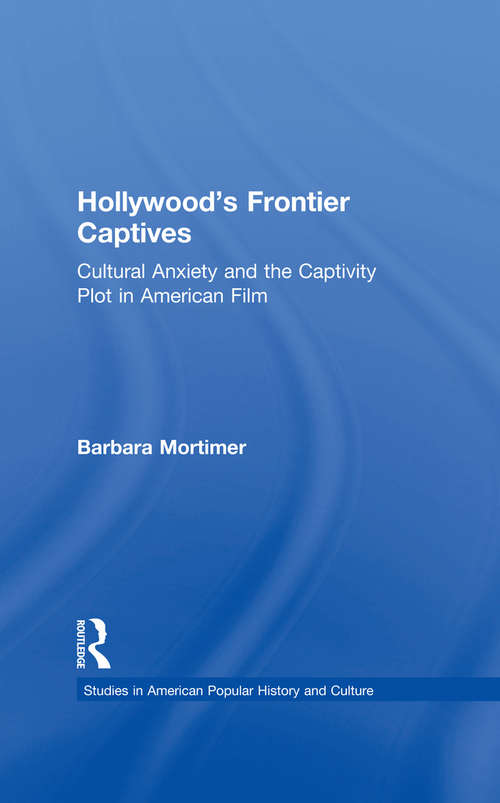Hollywood's Frontier Captives: Cultural Anxiety and the Captivity Plot in American Film (Studies in American Popular History and Culture)
By:
Sign Up Now!
Already a Member? Log In
You must be logged into Bookshare to access this title.
Learn about membership options,
or view our freely available titles.
- Synopsis
- The captivity narrative, the earliest genre of American popular literature, continues to be of cultural significance in late 20th-century Hollywood. Many popular films of the last four decades incorporate the most common elements of the captivity narrative tradition, including a politically contested frontier setting and a plot involving innocent, family-oriented white Americans held captive by hostile, culturally alien natives. At the same time, these films offer something new to the narrative tradition: they focus on the captive who resists rescue and the challenge this resistance poses to American cultural self-confidence. By focusing on the lost captive, these films, beginning with The Searchers (1956), deal with questions about American identity raised by a white American's cultural and potentially political transformation. Films as diverse as Little Big Man, Taxi Driver, and The Deer Hunter adapted the captivity narrative's conventions to criticize aspects of contemporary American society and reject outworn models of male heroism; at the same time, however, they retained the genre's traditional assumption of white superiority and its fear of female sexuality. Bibliography. Index.
- Copyright:
- 2000
Book Details
- Book Quality:
- Publisher Quality
- Book Size:
- 192 Pages
- ISBN-13:
- 9781317776741
- Related ISBNs:
- 9781315805177, 9781138971929, 9780815331162
- Publisher:
- Taylor and Francis
- Date of Addition:
- 09/24/23
- Copyrighted By:
- Barbara A. Mortimer
- Adult content:
- No
- Language:
- English
- Has Image Descriptions:
- No
- Categories:
- History, Nonfiction
- Submitted By:
- Bookshare Staff
- Usage Restrictions:
- This is a copyrighted book.
